Collection
Date
Location
Type
84 results
Remembering 1807
In 1807 Britain legally abolished the slave trade, although it continued to participate in and profit from the institution of slavery. In 2007 the British government committed public funds to mark the bicentenary of the Slave Trade Act. The Remembering 1807 project has collected and archived material relating to the many events and activities that took place during 2007. These records help us to locate and understand the place of slavery, the slave trade and its abolition in the UK’s public history, commemorative traditions and popular memory. Background to the collection...
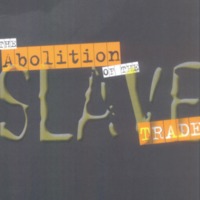
The Abolition of the Slave Trade
Kirklees Council ran a range of events in 2007, focused on local connections with slavery and abolition. Kirklees Civic Sunday was the official commemoration at Huddersfield Parish Church, with a performance by a local gospel choir and a presentation by actors as historical characters. The links…
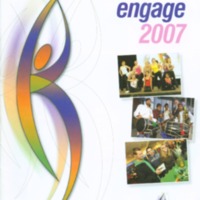
Engage 2007
The Engage 2007 Festival of Culture celebrated cultural freedoms in South Gloucestershire. Led by South Gloucestershire Council, and in partnership with local volunteer groups, schools and community groups, the festival took place on 17 November 2007. It featured 40 live performances of drama, dance…
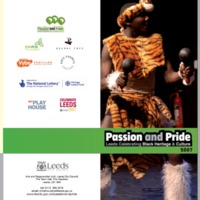
Passion and Pride
Passion and Pride was a creative partnership project bringing together Leeds City Council's Arts and Regeneration Unit with twelve local community organisations. Building on momentum established through Black History Month, the performances, exhibitions and workshops celebrated black heritage and…
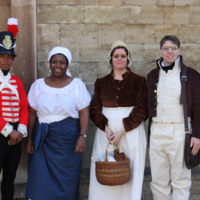
Beyond the Bicentennial
In collaboration with the Peterborough branch of the African Caribbean Forum, Peterborough Museum hosted 'Beyond the Bicentennial, 1788-1838: Exploring 50 Years of the Slave Trade'. The exhibition's focus was the fifty years leading up to the end of slavery in the British Empire, 1833. It…
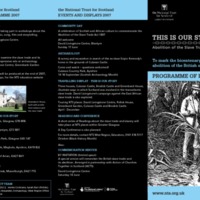
This is Our Story
To mark the bicentenary, the National Trust for Scotland put together a wide-ranging programme of events to engage their audiences with Scottish connections to slavery and abolition. Three National Trust for Scotland properties in the West of Scotland – Culzean Castle, Brodrick Castle and…
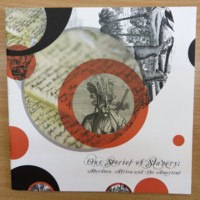
Our Stories of Slavery: Aberdeen, Africa and the Americas
The Our Stories of Slavery events programme ran from May to October 2007, co-ordinated by the Arts Development team at Aberdeen City Council. The project examined all aspects of Aberdeen's links with slavery and the transatlantic slave trade, including the role of Aberdonian landowners as slave…
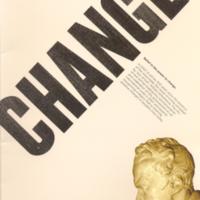
Wilberforce 2007
Wilberforce 2007 was a year-long programme of events from Hull City Council, commemorating the bicentenary and celebrating the city's diverse communities. The programme, named after 'son of Hull' William Wilberforce MP, was based around the themes of Pride, Freedom, Belief and Change. In partnership…
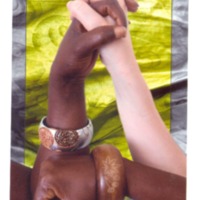
Greetings! Wilberforce Women
The Wilberforce Women project was launched by the Hull Women's Centre with the support of Wilberforce 2007. Hull based photojournalist Lee Karen Stow worked with groups of women from the twinned towns of Hull and Freetown (Sierra Leone), through photography and messages of friendship. Women from…
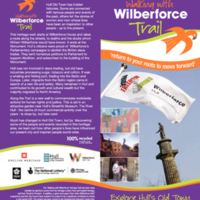
Walking with Wilberforce Heritage Trail
Part of Wilberforce 2007, the Walking with Wilberforce Heritage Trail is a journey through Hull's Old Town, via twelve important landmarks related to William Wilberforce and the theme of freedom. Along the trail is the Humanitarian Wall, at the Wilberforce Institute for the study of Slavery and…
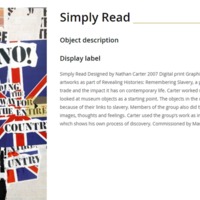
Revealing Histories: Remembering Slavery (Manchester Art Gallery)
As part of the Revealing Histories: Remembering Slavery project, Manchester Art Gallery highlighted items in its collection of fine art and decorative objects which revealed the wealth generated by the region's involvement in the transatlantic slave trade and the public's consumption of sugar, tea,…
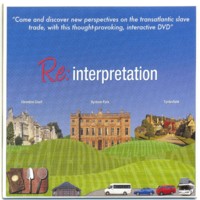
Re:interpretation
Re:interpretation was a participatory media project carried out by Firstborn Creatives in partnership with the National Trust. The project explored transatlantic slavery and its connection with three National Trust properties in South West England: Clevedon Court, Dyrham Park and Tyntesfield. It…
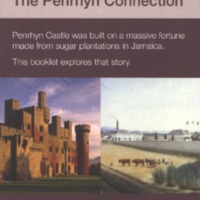
Sugar and Slavery - The Penrhyn Connection
Penrhyn Castle on the outskirts of Bangor in Wales is owned by the National Trust. In 2007, the bicentenary was marked with a special exhibition and accompanying events exploring the connections between the Castle and the fortune of its former owners, the Pennant family, built on Jamaican sugar from…
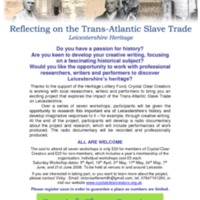
Reflecting on the Trans-Atlantic Slave Trade
Crystal Clear Creators is a not-for-profit arts organisation based in the East Midlands. Reflecting on the Trans-Atlantic Slave Trade enabled a series of community creative writing workshops in Leicester exploring themes of the slave trade. The workshops involved talks from experts in the field, a…
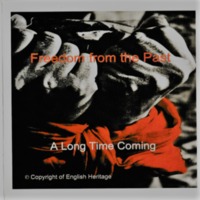
Freedom from the Past: Long Time Coming
A collaborative project between Churches Together in Northampton, English Heritage, Northamptonshire Black History Association (NBHA) and The Northampton Schools Excellence Cluster. Freedom From the Past: Long Time Coming was led by Mary Clarke, Director of the Doddridge Centre, where the NBHA…
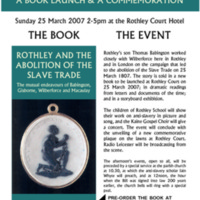
Rothley and the Abolition of the Slave Trade
A commemorative event to mark the bicentenary in Rothley, Leicestershire, was organised by a planning group of Rothley Parish Church and the Committee of the Rothley History Society. The event on 25 March 2007 launched a new book by Terry Sheppard and Iain Whyte, ‘Rothley and the Abolition of the…
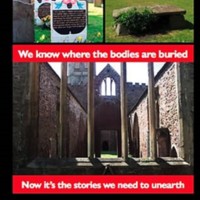
Diverse Stories
The Diverse Stories project began in 2007 with participants from Malcolm X Elders, an Afro Caribbean elders and community group in Bristol, taking part in a creative writing project to mark the bicentenary. This was jointly supported by Show of Strength Theatre Company, Our Stories Make Waves and…
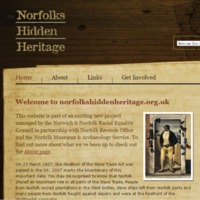
Norfolk's Hidden Heritage
Norfolk’s Hidden Heritage was a partnership project between the Norwich and Norfolk Racial Equality Council (NNREC), the Norfolk Record Office (NRO) and the Norfolk Museums and Archaeology Service (NMAS) which researched the links between Norfolk and transatlantic slavery. For example, many…
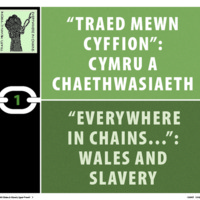
Everywhere in Chains: Wales and Slavery
Everywhere in Chains was an umbrella project created for the bicentenary commemorations in 2007, by a collaboration between Amgueddfa Cymru - National Museum Wales, the National Library of Wales, University of Wales, Bangor and CyMAL: Museum Archives and Libraries Wales (part of the Welsh Assembly…
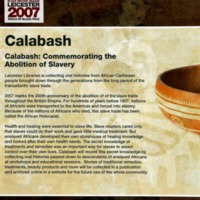
Calabash
Leicester Libraries collected oral histories from African Caribbean people brought down through the generations from the transatlantic slave trade. Health and healing were essential to slave life, and enslaved Africans developed their own healing knowledge. The Calabash project recorded this secret…
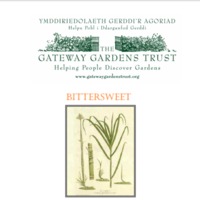
Bittersweet: Sugar, Spice, Tea and Slavery
The Bittersweet programme by the Gateway Gardens Trust involved 80 free guided garden visits over two years, around more than 30 gardens in Wales with a range of community groups, schoolchildren and lifelong learners. The themes of the visits and a mobile exhibition were the links between the slave…